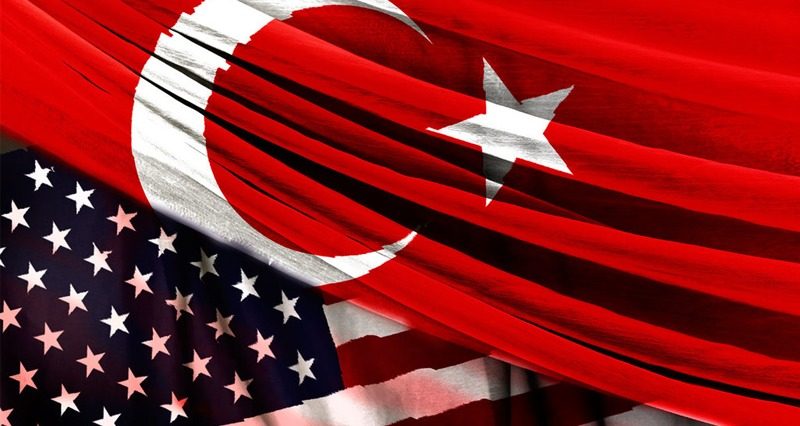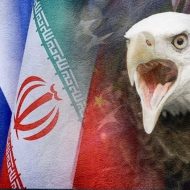Tensions between Turkey and the United States has risen dramatically following Ankara’s purchase of Russian S-400 missile defense complexes. The discussion between the two countries has developed into threats of sanctions, mutual counter-measures, and eventually open opposition on social networks.
The United States initially tried to dissuade Turkey from buying the S-400 via threats against the country’s participation in Washington’s F-35 fighter jet training program. When Turkey made it clear that it did not intend to retreat on the issue, a number of American high-ranking officials, including President Trump, made statements, warning Ankara about the possibility of imposing sanctions if it didn’t reconsider.
In turn, President Erdogan, along with representatives of Turkey’s Ministry of Defense and Ministry of Foreign Affairs, stated sharply that they did not intend to bow their heads to the threats of the United States and would still buy the S-400.
A LETTER WITH A TWIST
The discussion eventually had an unexpected twist: US Secretary of Defense Patrick Shanahan sent an official letter to Turkish Minister of Defense Hulusi Akar in which he stated that Turkish pilots who were trained in F-35 control in America would leave the country by July 31 and that no new pilots will be trained under this program. Shanahan noted that this decision was not final, and could be changed if Turkey rejects the S-400.
CALL FROM AKAR IN RESPONSE TO LETTER
Shortly after the publication of the text of the letter in the media, Turkish Defense Minister Hulusi Akar called Shanahan and expressed concern about the tone of the letter, suggesting that it was not in line with the principles of allied relations and, in general, critiquing the US’ position on the issue.

More than 500 veterans with American flags line a procession route at the Iowa Veterans Cemetery in Van Meter, Iowa, April 24, 2009, after providing a motorcycle escort for the unclaimed remains of seven Iowan veterans. The ceremony coincided with Navy Week in Des Moines, Iowa, which is one of 22 Navy Weeks planned across America in 2009. Navy Week is designed to show Americans the investment they have made in their Navy and increase awareness in cities that do not have a significant Navy presence. (DoD photo by Senior Chief Mass Communication Specialist Gary Ward, U.S. Navy/Released)
In a written statement to the press, the Turkish Defense Ministry shared the details of the telephone conversation Akar and Shanahan:
“During the conversation, the sides expressed their positions and demands on bilateral cooperation in the field of security and defense, primarily on the production of F-35 fighter jets. Following the conversation, the ministers agreed to continue the dialogue within the framework of the meeting of the heads of defense ministries of the NATO countries to be held in Brussels. ”
SUPPORT FOR THE PKK CONTINUES
Against a background of mutual threats to impose sanctions, the United States, without stopping to write, pushed the tension with Turkey to a new level, excluding Turkey from the F-35 program and suspend the training of Turkish pilots. At the same time, the United States sent the Democratic Forces of Syria, the backbone of which is the Syrian branch of the Kurdish terrorist group the PKK / YPG, 200 trucks with heavy weapons and armored vehicles.
WASHINGTON’S FAVORITE TACTICS
The US’ arms shipment to the PKK / YPG is not the first, and, apparently, not the last action on the part of Washington to assist the terrorist organization. Despite Turkey’s protests, the US continues to supply the YPG with arms and ammunition under the pretext of fighting ISIS.
A NEW ARENA OF CONFRONTATION – TWITTER
The United States has chosen social networks as a new platform for geopolitical confrontation. The US embassy in Ankara, on its official Twitter account, has made a number of tweets regarding freedom of speech and the press in Turkey. One statement read:
“Freedom of speech of the press strengthens democracy, and these freedoms must be protected everywhere. The accusations of journalists that they perform their professional duties contradict this global principle. ”
Ankara’s Foreign Ministry responded to the US’ prevocational tweet with a statement of their own, entitled “Weapons and Ammunition Supplied by the US to the PKK / YPG Terrorist Organization”.
“Freedom of speech and the press is guaranteed and protected by the law in Turkey. However, this does not grant anyone the right to violate the law and support terrorism under the pretext of engaging in journalism. ”









Leave a Reply